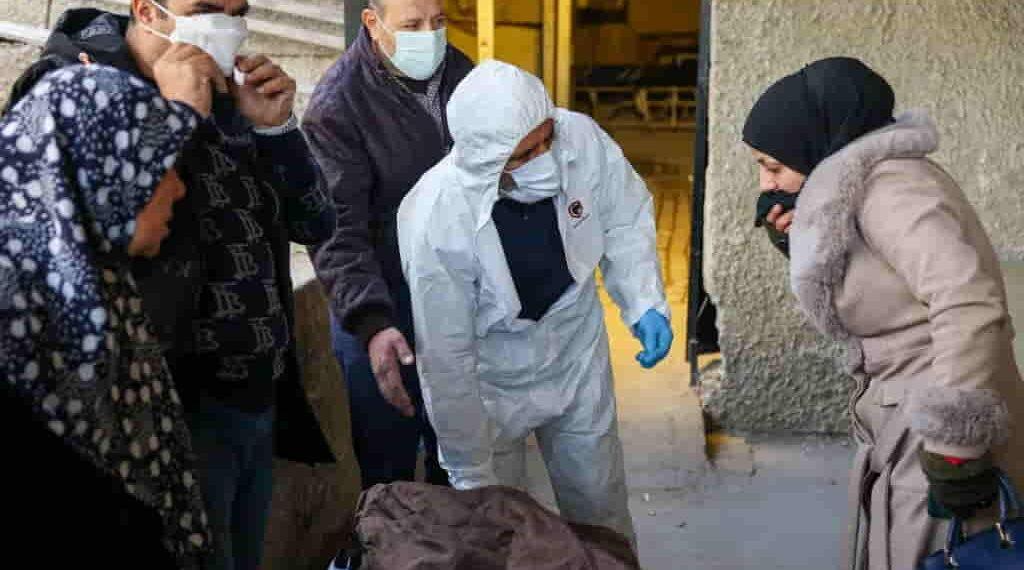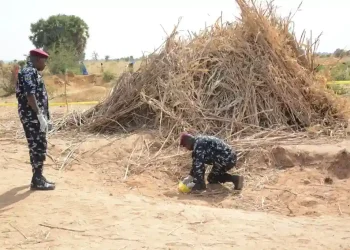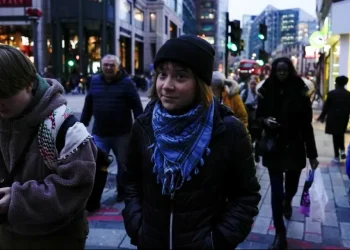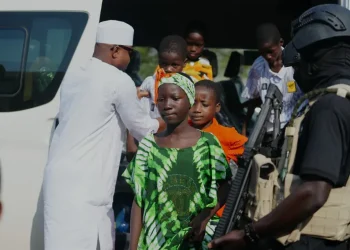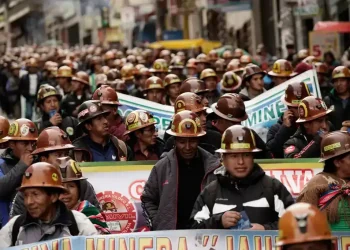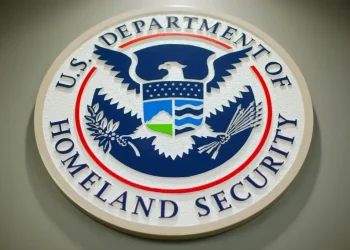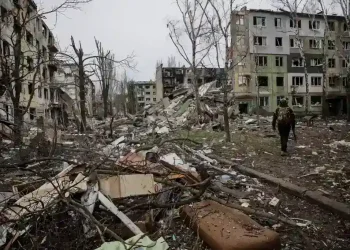Rebel Discovery of Tortured Bodies in Damascus Hospital Sparks Global Outrage
Syrian rebels reported uncovering approximately 40 bodies showing signs of torture at Harasta Hospital, a military facility in a Damascus suburb. This grim discovery follows the fall of President Bashar al-Assad, who fled the country amid the rebels’ rapid advance.
Gruesome Evidence of Torture
Photos and videos released by the rebels depict bodies wrapped in blood-stained shrouds, stacked in a refrigerated room. Visible wounds, bruises, and adhesive tape bearing names and numbers were present on many bodies.
“I opened the mortuary door myself. It was a horrific sight,” said Mohammed al-Hajj, a rebel fighter. According to al-Hajj, the discovery was made following a tip from hospital staff. The rebels immediately informed their command and coordinated with the Syrian Red Crescent to transport the remains to a hospital in Damascus for identification by families.
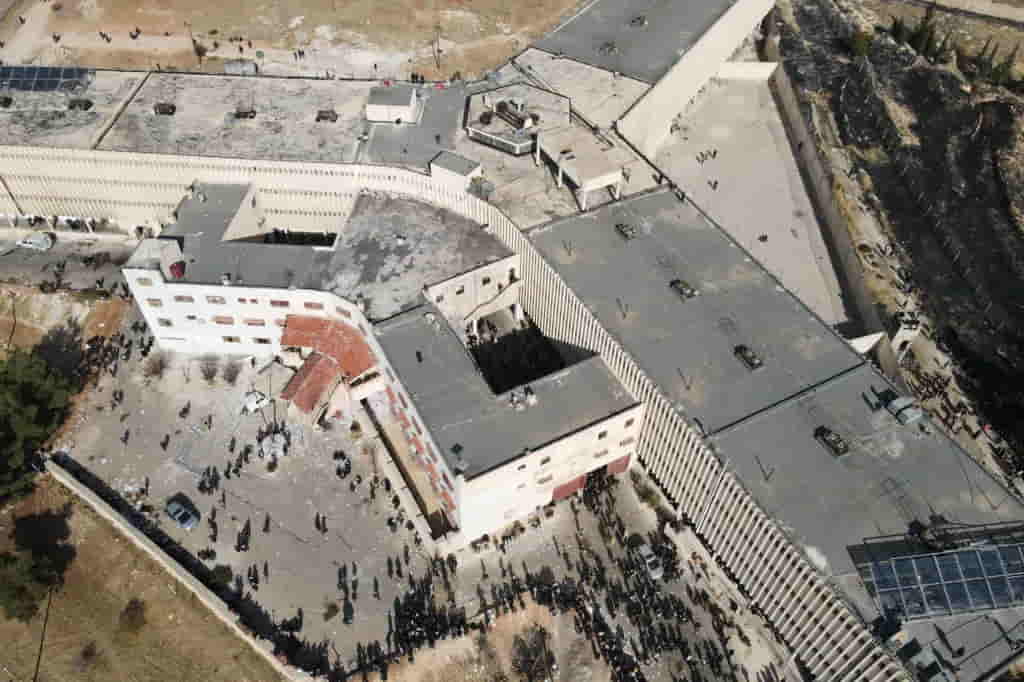
Signs of Systematic Atrocities
It is unclear how long the bodies had been stored, but varying stages of decomposition suggest they had been there for some time. Human rights groups believe many of the victims were likely detainees from Saydnaya prison, infamous for torture and executions under Assad’s rule.
Diab Serriya, co-founder of the Association of Detainees and the Missing in Saydnaya Prison (ADMSP), stated that Harasta Hospital served as a hub for processing detainee bodies from Saydnaya and Tishreen Hospital before their transfer to mass graves.
Saydnaya: A “Human Slaughterhouse”
Saydnaya prison has long been synonymous with human rights violations. Amnesty International described it as a “human slaughterhouse,” estimating that over 30,000 detainees were killed between 2011 and 2018 through executions, torture, starvation, or lack of medical care. Recent reports indicate that at least 500 more detainees died between 2018 and 2021.
The ADMSP revealed that bodies from Saydnaya were temporarily stored in “salt chambers,” makeshift mortuaries designed to preserve corpses before burial on military grounds.
Search for Missing Detainees Ends Without Success
Simultaneously, the Syria Civil Defense, known as the White Helmets, concluded a comprehensive search of Saydnaya prison on Monday, aiming to uncover secret cells or underground areas where detainees might be held. Despite deploying specialized teams, sniffer dogs, and personnel familiar with the prison’s layout, no additional bodies or detainees were found.
“We share the profound disappointment of the families who still have no answers about their missing loved ones,” the White Helmets said in a statement.
A Legacy of Brutality
The ADMSP’s records indicate that, as of late October, approximately 4,300 detainees were held at Saydnaya, with many now presumed released following Assad’s ouster. Harrowing testimonies from former prisoners have shed light on the systemic abuse, with survivors recounting extreme torture and neglect.
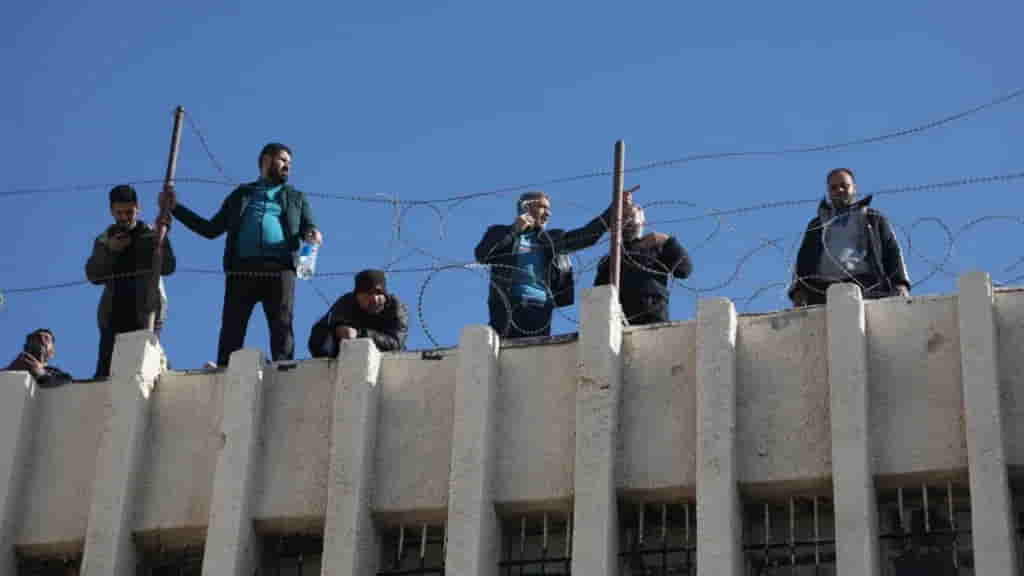
Global Call for Accountability
Abu Mohammed al-Jolani, leader of Hayat Tahrir al-Sham (HTS), the Islamist militant group instrumental in Assad’s fall, vowed to hold senior officials accountable for their roles in the regime’s torture practices. Jolani announced plans to publish the names of those responsible and offer rewards for information leading to their capture.
A Bleak Chapter in Syria’s History
The discoveries at Harasta Hospital and Saydnaya prison highlight the scale of human rights abuses under Assad’s regime. The international community has widely condemned these atrocities, with calls for justice and accountability growing louder. As Syria embarks on a fragile transition, the wounds of its brutal past remain raw, with thousands of families still searching for closure.
This article was rewritten by JournosNews.com based on verified reporting from trusted sources. The content has been independently reviewed, fact-checked, and edited for accuracy, neutrality, tone, and global readability in accordance with Google News and AdSense standards.
All opinions, quotes, or statements from contributors, experts, or sourced organizations do not necessarily reflect the views of JournosNews.com. JournosNews.com maintains full editorial independence from any external funders, sponsors, or organizations.
Stay informed with JournosNews.com — your trusted source for verified global reporting and in-depth analysis. Follow us on Google News, BlueSky, and X for real-time updates.
